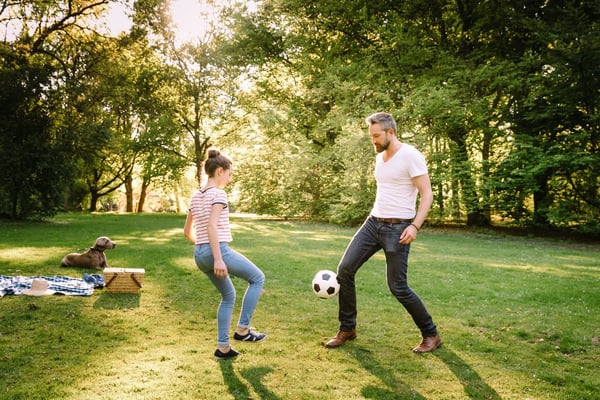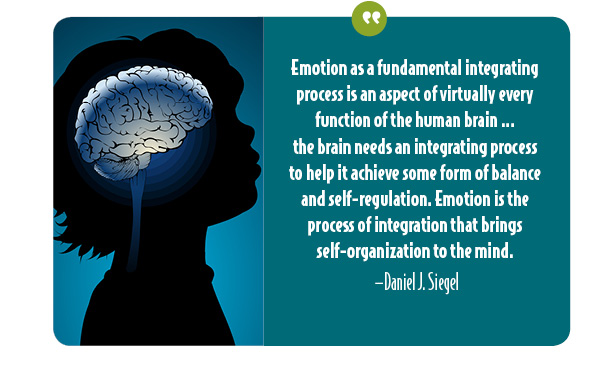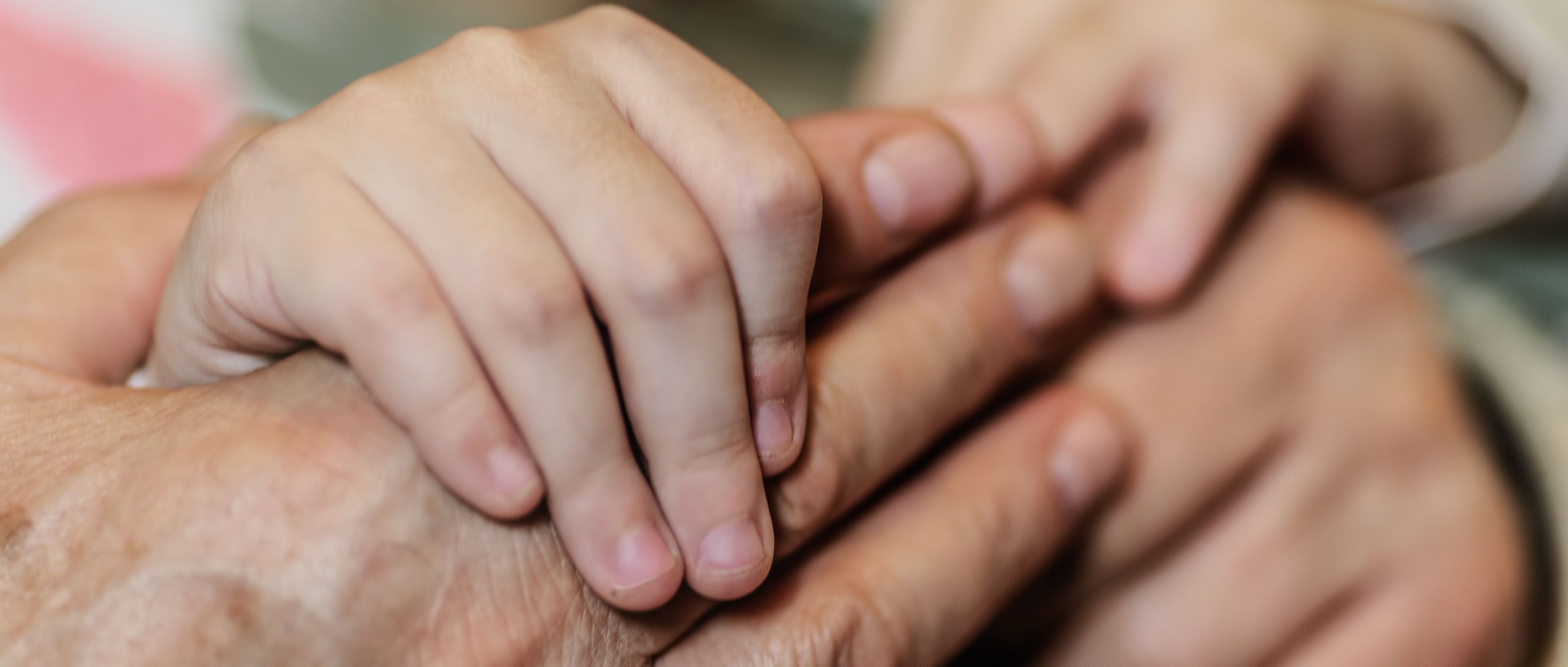At a time when we are challenged in ways we never anticipated, emotional intelligence is more important than ever. Everyone needs emotional intelligence (also known as an emotional quotient, EQ, or emotional fitness). There are numerous articles and volumes of research showing that having a high EQ is one of the most important ingredients for succeeding in life.
Emotional intelligence is no longer just an intriguing concept or a buzzword. It's imperative that we as parents and our children master our emotional worlds.
Estimated reading time: 5 minutes

And parents are the primary teachers to arm children and teens with the skills they need to be resilient in handling everything life throws at them. And today, the coronavirus, drastic change, and the great unknown have been thrown at them.
For a child or teen, having emotional fitness is equally important as physical health. And just like in sports, they need to develop skills while strengthening muscles and increasing muscle memory to achieve success. EQ makes a difference in a child's academic success as well, and emotional intelligence determines whether they survive—or thrive—in their developmental years.
With so many societal challenges and such easy access to unhealthy influences, our children must be emotionally fit to navigate harsh realities, such as the coronavirus along with navigating so many other influences, such as the slick addiction of vaping, a culture of perfect, air-brushed models alongside a bullying epidemic, and the alarming trend of suicide.
How Do You Know If You’re Raising an Emotionally Intelligent Person?
Whether you're grappling with the power struggles of a two-year-old or in the throes of teenage years, having a modicum of reassurance and support is helpful. Regardless if you manage family stress by tag-teaming as two working parents, by step-parenting, or by shouldering most of the work as a single parent, one thing hasn't changed for decades: a parent's influence in a child's life is tops!
 So, how do you know how well YOU are doing as a parent? How do you gauge and measure how your child is doing emotionally? Is there a parental guarantee that ensures that they’re building healthy emotional development?
So, how do you know how well YOU are doing as a parent? How do you gauge and measure how your child is doing emotionally? Is there a parental guarantee that ensures that they’re building healthy emotional development?
Over the years, as a parent coach and parent educator, I've conducted scores of behavioral consultations, taught workshops and parenting classes as well as coached hundreds of parents. The one resounding and sobering question I hear is: "How can I teach my children skills I don't have or model for them what I don't know how to do?"

How Our Past Influences Our Parenting
As a young mother, I had the same question. I found myself raising three young children with an empty parenting toolbox. Three decades later, my passion and compassion for supporting parents are driving forces in my work. I know what it's like to construct essential skills from scratch and still have to show up 24/7 for your children.
There's no greater sense of helplessness than when you discover that your deep, committed love for your children isn't enough. No matter how much you love them, your past conditioning and experiences as a child yourself along with unresolved pain and missing skills pop up to sabotage love!
For example, once when conducting an organizational training on leadership, an attendee shared her humiliation as an overweight elementary child. At gym class and every time she joined sports, she agonized, often coming in last over the finish line or missing a catch and letting her team down. However, her father had been a football star in high school and was an avid sports fan as an adult, so he urged her to "push through" and "buck up." It became more and more painful, but she persevered, seeking to get his approval.
It wasn't until she became a parent herself and was struggling to attend her own son's track meets that these old feelings surfaced. She finally dared to be honest with her dad. When she leveled with him, her father cried. He had no clue that he had unknowingly applied so much pressure! His ambitions and success in sports clouded his perceptions and inhibited him from thoughtfully supporting his daughter for who she was.
We can deny the impact of our childhood, or we can learn how to heal ourselves while supporting our children's growth and enhancing their emotional development.
Daniel Siegel, a child psychiatrist and early childhood expert, addresses the effect of our past on our parenting experience:
"Issues that are rooted in our past impact our present reality and directly affect the way we experience and interact with our children even when we're not aware of their origins. To our role of parenting, we bring our own emotional baggage, which can unpredictably interfere in our relationship with our children."
Being a Conscious and Visionary Parent
Unfortunately, a lot of parents are looking to get it "right" according to their perception of someone else’s rules instead of looking within themselves for the answers. This leads to many sincere, loving people being overwhelmed and confused even though they seek to do a good job. Millions of blogs, hundreds of parenting books, and an abundance of expert advice inundate parents. Who should they listen to and trust?
I maintain that the most important thing is to listen to your own heart and deal with unresolved personal issues that interfere with conscious parenting. It's not about being perfect; it's about being real and present.
Conscious and visionary parenting begins with your values. As parents, we must get in touch with what is most important to us and decide what it is that we deem critical to instill in our children. Then it’s our job to keep these values and goals top-of-mind.
 A few years ago, I had a student in one of my out-of-state parenting classes, who was a pediatrician. This woman confided in me that before she had children, she would observe misbehaviors at her practice and in the grocery store or mall with utter disbelief, disdain, and judgment. She'd think to herself, "How hard can it be to control a toddler!?" Then she had her first child, and she admitted that her view of the world dramatically changed. Now, she experienced first-hand reactions, triggers, and the inability to "control" or manage her child's behavior.
A few years ago, I had a student in one of my out-of-state parenting classes, who was a pediatrician. This woman confided in me that before she had children, she would observe misbehaviors at her practice and in the grocery store or mall with utter disbelief, disdain, and judgment. She'd think to herself, "How hard can it be to control a toddler!?" Then she had her first child, and she admitted that her view of the world dramatically changed. Now, she experienced first-hand reactions, triggers, and the inability to "control" or manage her child's behavior.
No one understands how challenging and all-consuming parenting can be until they are a parent.
Skills that parents often lack but are critical to conscious parenting:
- Setting effective boundaries
- Identifying, understanding, and handling varied emotions
- How to teach children self-control and how to calm themselves
- The ability to empathize or how to teach empathy
- Consistency to follow through with consequences
- Knowing what's reasonable versus indulgent and permissive parenting
- Ability to be loving and firm without overpowering
Each one of these skills (or lack thereof) is rooted in what we learned or didn't learn growing up. Past painful experiences fuel knee-jerk reactions and can make parenting overwhelming and exhausting.
If you want to learn essential keys to emotional intelligence and enable your child to grow up to be a free-thinking, responsible, and loving adult, keep growing as a person and as a parent.
Parental Responses Shape a Child's Emotional Intelligence
Most of what children and teens learn about emotional intelligence and what comprises their understanding of their emotional landscape is made up of their interactions with their caregivers.
Through the responses of the adults around them, especially their parents, children learn how to identify emotions, process and express feelings, as well as how to use their minds to regulate their behavior and make wise choices.When we as parents set appropriate limits, set healthy boundaries, and stay true to our feelings or needs while also communicating clearly to our children, they begin to internalize this same wisdom.
Why Is Listening to Emotions So Important?
When we think of emotions, we often think of them as "inconvenient" or a "hassle" or "unnecessary." I've heard many times in many different circumstances, "Why can't I just do what I want without my emotions getting in the way!?" or "I don't want to feel; emotions just make my life harder."
We need to begin to fully appreciate the essential value of emotional turbulence and the emotionality of our human experience. When we learn about emotion's extraordinary validity and purpose, then we can make high EQ and teaching emotional intelligence to our children a priority in our lives.
Science has shown that a person achieves more balance, more inner peace, more integration, and more illumined action when paying attention to emotions!
Knowing that every part of what we feel is utilized by the brain to create order, does this make the emotional experience more worthwhile? You bet! Will this knowledge help motivate you to put the effort and time into understanding feelings and learn how to modulate emotions in your daily family life? It sure did for me!
If you see the value, here's a free, deep-dive webinar: "How to Use Your Emotions to Make Life-Transforming Change."

Actions to Promote Emotional Fitness in Your Family
There are core actions parents can do regularly to help children learn emotional intelligence and mature in healthy ways—even if you lack some tools yourself!
- Be aware of what you're feeling. The first step in helping your children learn about their emotional nature is to observe your feelings and reactions. It's hard to help children accept their feelings if you don't acknowledge and nurture yours. It's even harder to be present to your child's emotions when you feel like a bomb is about to go off inside of you. Don't wait for things to build. Be mindful. Feel your emotions. Integrate impactful experiences and learn from them.
- Be honest with yourself FIRST, then with your children. Children and teens are astute, and they watch parents like hawks hunting for prey. Often, they know that you're feeling something before you do! So, don't pretend everything is fine when it's not. However, don't use your children as dumping grounds either. It's unhelpful to overwhelm a child with your problems, but it's perfectly healthy to say something like, "I'm sad right now about a friend's remark. I'll be fine after I talk it through with her." or "I'm disappointed I didn't get the promotion at work. This setback is hard, but it will show me how to do better in the future." or "I'm frustrated about something at work. Thanks for asking." Be sure and adjust each response, its tone, and length to the developmental stage of the child.
- Take time to calm yourself if you're too upset to respond to your child appropriately. Every parent has times when patience runs thin, or life's curveballs take us off-guard. It's better to own our experience (model that emotions are natural) and take a break to manage our emotions (model the need to pay attention and take action to calm). Generally, children are very understanding. Tell them you'll see them in a few minutes and then do it!
- Allow the free expression of emotion—no emotion is wrong or bad. Emotions are a way to process and integrate our experiences. Each feeling has a purpose in helping us interpret our needs and to live a healthier and happier life. If we tell our children to "not make such a big deal..." of something or shame them for expressing a strong emotion like anger, then self-compassion and self-acceptance can be more difficult for them, especially as they grow up.
- Empathize with your child whenever possible. Empathy is one of the biggest keys to understanding and diffusing emotion in ourselves and our children. When your child feels like you “get” them, like you understand, they feel safer, and their emotions calm down. Regularly expressing empathy and encouragement keep emotions from escalating and cultivates healthy interactions and stronger relationships.
For a deeper dive into how to be empathetic, try our workbook, Real Empathy, Real Solutions: 4 Keys for Unlocking the Power of Empathy.
The Importance of Self-Care for Parents
With science accumulating tons of research, the final word on parenting is always evolving. But one thing is for sure: you can and will be a better parent by paying attention to your inner landscape and dealing with your unresolved issues. Then reactions won't pop up unexpectedly and derail your parenting values and intentions. And when they do, you'll be prepared.
Also, keep in mind that you, like every parent, are trying your best, especially given your family of origin and experiences growing up. All parents want what is best for their children even when it doesn't look like it sometimes. We all make mistakes, so be kind to yourselves and remember self-care as a parent!
Are there guarantees of parenting success? Nope. However, self-care, being present to your emotions, and acknowledging your experiences through self-compassion go a long way in supporting your parenting journey so that you can be your best self! In turn, this effort translates to better parenting and the ability to be more present and loving to your children—having more fun along the way.
To receive personalized parenting advice or support from a veteran parent and parenting coach, contact us at Heartmanity and check out our resources.








